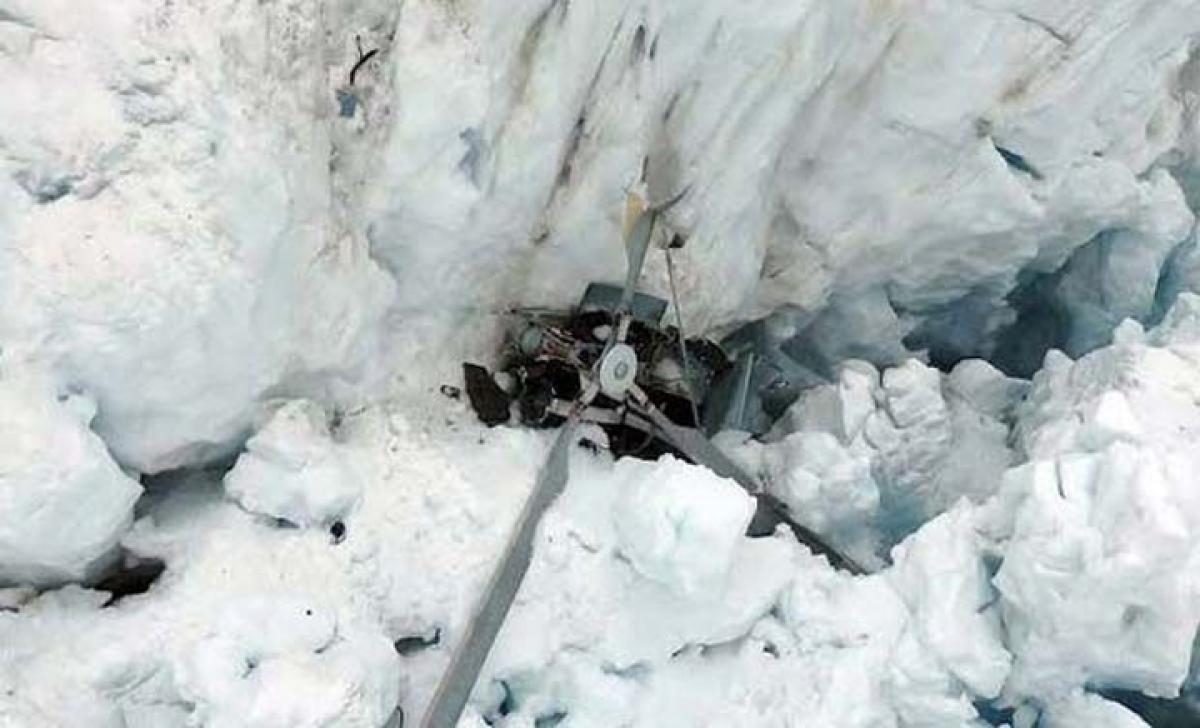Live
- SIPB approves Rs 85,000 cr investments
- AP Assembly session: Eighth day meeting begins with question hour
- Facial recognition attendance system in TG Secretariat soon
- Nearly 6,000 contract employees whose services were regularised get relief in HC
- VIT celebrates 40th anniversary
- Bandi Sanjay reviews ‘Sampoorna Abhiyan’ in Nagaland
- A brain dead person saves four as his organs donated
- SRR students excel in various competitions
- ISRO's communication satellite launched by Musk's SpaceX
- Encouragement assured for innovation in farming
Just In

x
Highlights
Specialist alpine rescuers battled through atrocious weather on Sunday to reach a helicopter crash site where seven people, including four English and two Australian tourists, were killed in New Zealand.
.jpg)
Specialist alpine rescuers battled through atrocious weather on Sunday to reach a helicopter crash site where seven people, including four English and two Australian tourists, were killed in New Zealand.
There were no survivors when the sightseeing helicopter plunged into the heavily crevassed Fox Glacier on the west coast of the South Island, on Saturday.
The victims were identified as Britons Andrew Virco, 50, and Katharine Walker, 51, of Cambridge, Nigel Edwin Charlton, 66, and Cynthia Charlton of Hampshire along with South Australians Leang Sovannmony, 27 and Josephine Gibson 29.
The pilot, Mitch Gameren, 28, had only recently returned to New Zealand after flying medevac missions in Malaysia.
The helicopter crashed at the popular tourist site during bad weather.
Continuing rain and low cloud hindered recovery efforts until a break in the weather late today morning allowed helicopters to take the specialist recovery team to the site of the disaster near the top of the glacier.
Mike Nolan, a spokesman for Alpine Adventures, which operated the Squirrel helicopter, said the ongoing dismal weather meant it could take days to complete the recovery operation.
"The weather is certainly hampering efforts. It looks like inclement weather for a further two or three days unfortunately," he told the New Zealand Herald.
"Hopefully there are some breaks in between where they can make progress -- but at this stage it's really slow."
The cause of the crash was not immediately known and aviation authorities were investigating.
Police were only alerted to the accident when the helicopter's emergency locator beacon was activated late on Saturday morning.
Debris was later found spread over several hundred metres with the main part of the aircraft wedged between house-sized blocks of ice.
Transport Accident Investigation Commission spokesman Peter Northcote said the wreckage was in crevassed and snow-covered terrain, presenting safety and access challenges.
All sightseeing tours over the glacier were grounded today to give airspace priority to the recovery operation.
The 13-kilometre (eight-mile) long Fox Glacier is listed as one of the most accessible glaciers in the world, attracting thousands of tourists each year.

Next Story
More Stories
ADVERTISEMENT
© 2024 Hyderabad Media House Limited/The Hans India. All rights reserved. Powered by hocalwire.com







